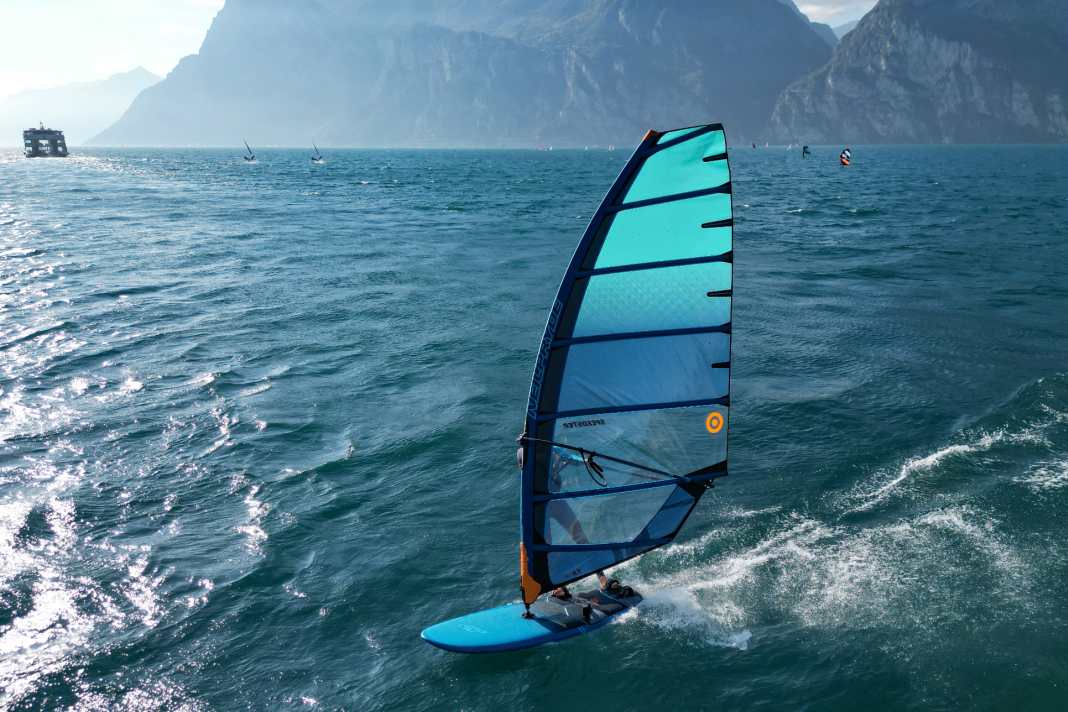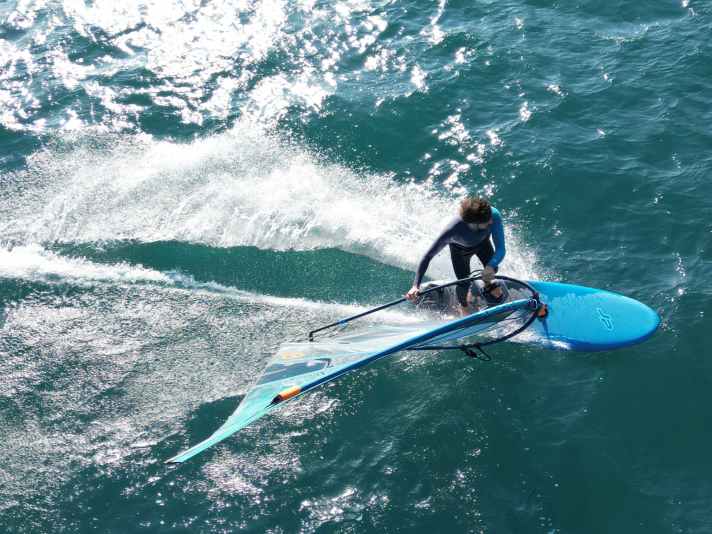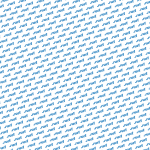





With the Super Ride, JP-Australia has launched a second freeride shape alongside the Magic Ride. In previous surf tests, the Super Ride consistently proved to be a little livelier, a tad faster and more light-footed. Jibes can be performed with less foot pressure and yet in tighter radii. On the other hand, the Super Ride lacked the Magic Ride's proverbial automatic jibing - a shape that steers through medium radii as safely and stably as a GPS drone with all its sensors. The Super Ride always required a little more balance when planing and also wanted to be actively steered in gybes.
JP-Australia Super Ride 2025 - four completely new shapes
JP-Australia now presents the third generation of the Super Ride series with four completely new shapes. Designer Werner Gnigler apparently saw opportunities to make these all-rounders even better. His main aim was to make the boards simpler and even more comfortable for a wider range of conditions while increasing the performance level. At the same time, the previous, popular main features of the boards were to be retained.
What has Shaper Werner changed on the 2025 Super Ride?
Werner Gnigler has revised the basic shape dimensions and slightly increased the tail and overall width. Compared to the Super Ride 124 from 2024, for example, the new Super Ride 125 is one centimetre wider overall and the tail has been widened by two centimetres. This should result in a more stable platform with an extended gliding surface, which, in combination with the new, more efficient rocker line, makes early gliding easier. Thanks to the reduced resistance and optimised efficiency, the board should glide higher in the water and offer a much smoother ride, especially in rough, choppy conditions. Thanks to the improved stability, Werner also hopes to achieve a higher speed.
The redesigned rail shape has been given a slightly higher apex, which should generate additional lift in jibes - especially in fast turns, where the board ideally maintains speed to complete jibes in full planing mode. The new edge shape also changes the deck radius and guarantees a comfortable stance, whether in the inner foot strap or in the performance setup closer to the edge. The edges in the tail area have been sharpened for additional control and efficient, turbulence-free water release.
JP-Australia Super Ride 2025: The first surf riding impression
We were able to get a small taste of the new JP-Australia Super Ride, the hard facts will follow in the comparison test. One thing we can say for sure: The board has not been improved in any way. It remains very manoeuvrable and offers excellent acceleration. The riding feel is still reminiscent of the previous shapes - still narrower and longer than a Magic Ride. The board reaches high speeds - without having to be surfed heavily on the leeward side. Despite the stable, flat position on the water, it conveys an excellent feeling of speed with little riding resistance.

The stiff hull gives a sporty, direct feel when chop is strong and the board shows its versatility in jibes: it allows narrow and wide radii and reacts very sensitively to weight shifts, making it easy to change radius and direction. This makes the board particularly exciting for both advanced and lighter riders.
Even in light or gusty winds, the JP-Australia Super Ride 116 is a lot of fun and stays fast even in wind holes. The foot straps are positioned in the outboard position so that boarding is still quite easy and comfortable. The standing position during the ride feels natural and comfortable. A versatile and fast board that also impresses in demanding conditions.
New fins for the JP-Australia Super Ride in the Wood Pro design
The shape fins of the ES boards are unchanged, while the Tuttlebox fins of the Wood Pro models are new - in sizes 38, 40, 42 and 44 centimetres. Compared to the previous fins, they have a more even outline - the difference is clearly visible at the trailing edge. This leads to a shorter profile length, which should result in less resistance and consequently higher speed paired with a lighter feeling when riding.
Features JP-Australia Wood-Pro construction
- Parabolic edge reinforcement
- Integrated reinforcement in the bow area with Innegra
- Paulownia wood sandwich construction throughout the underwater hull with additional reinforcements
- Different positions for foot straps
- Scale for foot straps
- New G10 fin
- Foil Tuttle Box - ideal for foiling

Features JP-Australia Epoxy sandwich construction
- Edge reinforcement
- Additional reinforcements made of paulownia wood
- Strong bow reinforcement with integrated Biax glass
- Deck stringer for stabilisation
- Different positions for foot straps
- Scale for foot straps
- Foil Tuttle Box - ideal for foiling

Stephan Gölnitz
Deputy Editor in Chief surf
Stephan Gölnitz comes from Bochum and had Holland as his home windsurfing territory for many years before moving to Munich in 1996 for the job of test editor at surf magazine. The materials engineering graduate worked as a surf instructor on the Ijsselmeer during his studies and competed for several seasons for the Essen sailing team in the Surfbundesliga and the Funboard Cup. He completed a traineeship at surf-Magazin in the test department and since then has actively accompanied almost all tests on the boom and for more than 10 years also as a photographer. Stephan has covered many thousands of test kilometers, mainly on Lake Garda and in Langebaan, but also in Egypt and Tobago. He gets his hands on over 100 new sails and boards every year as his company car. Privately, he prefers to surf with a foil on Lake Walchensee or “unfortunately far too rarely” in the waves. SUP is Stephan's second passion, which he pursued for several years at numerous SUP races. Today, he prefers to paddle on river tours with family or friends - even for several days.

